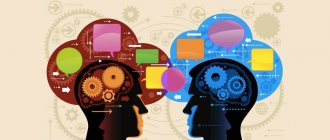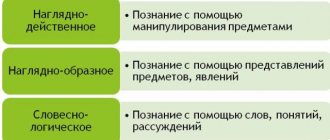What is attention
Attention is one of the main human cognitive functions. In psychology it has a special role. This is a kind of filter through which all surrounding information passes. For clarity, it can be compared to the beam of a flashlight or spotlight, which focuses light on a specific object, leaving everything else out of sight.
The quality of other cognitive functions – thinking and memory – depends on the quality of attention. It happens that we scold ourselves for forgetfulness, we try with all our might to develop memory, while it has absolutely nothing to do with it. It’s just that at the moment of perceiving the information, our attention wandered somewhere in the vastness of space, so nothing entered our memory.
At some moments, failure to concentrate can cost us our lives. For example, while driving a car.
There are professions that require extreme care: air traffic controller, train driver, watchmaker. They become not some geniuses who have ideal attention by nature, but ordinary people. If they managed to bring the skill of concentration to perfection, then you and I can do it too. Regular training will help you “pump up” your attention muscle and thereby increase your productivity.
Properties of our attention
These include a sense of stability in which we can maintain and maintain our attention. This moment depends on various factors: our age, motivation, general condition of the body. For example, if a student is constantly distracted while doing homework, putting it off, his attention is unstable. And when concentrating his attention, a person focuses on specific things.
We are also able to switch our attention - that is, from one object, phenomenon to another. Thanks to this, we can combine various tasks. For example, many of us easily cope with washing dishes and then talk on the phone. Milk may escape, and we switch to this process.
This is how attention is distributed, which depends on how a person manages to switch from one to another. Each of us has our own attention span, in which we contain a certain amount of information. According to scientific research, at a certain moment we can be attentive to 7 objects at the same time. This can be easily checked. After communicating with a person, try to remember what his facial features are. You will remember about 7 signs.
Concentration, switching and distribution of attention
Before moving on to practical recommendations and exercises, I will tell you what exactly you can train and how. There are three aspects of attention that you need to learn to master.
- Concentration is the ability to direct all your attention to one specific object or action. The better your ability to concentrate, the longer you can work without distraction.
- Switching is the ability to quickly change objects of attention. You've probably noticed that when there is a sudden change in activity, it is difficult for the brain to immediately readjust. This is especially true for anything associated with strong emotions.
For example, you come home from work, where you just had an argument with your boss, and are trying to play with the children. But my thoughts continue to revolve around the unpleasant situation.
- Distribution of attention plays an important role when we need to perform several actions at once and control several objects. The best training for this is driving. Remember what driving a car is like. You need to constantly monitor the road, change gears, squeeze the clutch, turn on the turn signals... At first it seems impossible, but then it turns out automatically.
It is very important to train all three aspects of attention. Our recommendations and exercises are aimed precisely at this.
Why do we get distracted
Let's highlight the main reasons why we find it difficult to concentrate.
Lack of willpower
Willpower in simple words is the ability to control your attention. Concentrate on what is important and cut off what is unimportant. Therefore, by developing willpower, you simultaneously improve the quality of your attention.
Discomfort
Uncomfortable posture, pain, hunger - all these are distractions that draw attention to themselves. You are probably aware that our brain processes body signals first. Therefore, before starting work, try to eliminate all these interferences.
A bunch of unsolved cases
It is very difficult to concentrate when many problems hang over you like a sword of Damocles. Even if you don't think about them at a particular moment in time, they still loom somewhere on the periphery of your consciousness. Start raking them slowly - time management will help you.
Types of attention
Despite the fact that the process itself is quite simple and understandable, in fact, there are several subtypes of concentration of nerve analyzers depending on the type of stimulus and previously done training that affects its perception. Even if it seems to us that we see and touch everything that is currently happening in front of us, this is just a mistaken opinion; the brain simply cuts off a very large part of the stimuli entering the information processing center. This is a defensive reaction to avoid unnecessary overload and a striking example of this is the fact that after a short time, a person stops smelling his perfume, although it remains throughout the day, or you can notice that there is no constant sensation of a watch on your wrist or a ring on your wrist. finger. Signals from the sensory system have not stopped reaching the processing center, but they have stopped being transmitted to our consciousness.
Involuntary attention
This process does not depend on previously present experience with a given object; it is the most basic type of mindfulness, which extends to everything that happens around a person. Let's say there is a passenger in a car who does not have a driver's license and does not know the meaning of road signs, but he just sees these signs from time to time and they attract his attention - this is called involuntary. Such a process rather depends not on training, but on the speed of reaction of the nervous system, which is influenced by many factors, such as nutrition, the presence of necessary microelements and the development of thinking in general.
Voluntary attention
The result of certain training that allows you not only to notice certain elements, but also to immediately understand their meaning. If we return to our example, such a process is available to the driver of a car, since, thanks to training, he has learned the meaning of road signs and has taught himself to always notice them. He looks at a road sign not because it is an attractive object, but to find out certain restrictions or necessary information on a given section of the road. This also includes the ability to read a certain language. A person not only notices an attractive inscription, but concentrates his attention on what is written there (on the information). Certain mindfulness tasks have an excellent effect on this type of concentration; they are the factor that trains the centers of the nervous analyzers to react to certain objects and not let them pass by our consciousness.
Post-voluntary attention
If we consider the levels of development of attention, then this is the next stage, after voluntary, since to achieve it, you first need to gain certain experience and learn to analyze certain information. After such an experience is repeated with a given person many times and over a short period of time, data analysis can pass by our consciousness and give us only the result. In the existing example, this looks like an experienced truck driver who does not consciously notice some signs, but clearly understands that he is already in a populated area and adheres to a different speed limit. The same thing happens with a person. If he reads books a lot, he can just skim the page without focusing his attention on what is written, but he already gets a picture of what is happening. The development of attention of this type directly depends on gaining experience in the previous type.
Recommendations for developing attention
Now we can finally consider specific ways and means of improving attention. They are perfect for teenagers and adults.
Give yourself extra motivation
Have you noticed that when you are doing something interesting and enjoyable, you do not need to hold your attention on purpose. On the contrary, you cannot tear yourself away from your favorite activity and switch to something else. How can this effect be transferred to all other matters?
The right attitude is very important. Every time before you start doing something, think about why it is important to you and what benefits it will ultimately bring. For example, when starting cleaning, imagine in bright colors how your apartment will shine after a couple of hours. At each stage, reward yourself for the work done. Once you've washed the floors, you can eat some candy and move on.
Concentrate on your feelings
It is very convenient to develop concentration through the senses. During the day, be distracted for 10-15 minutes and concentrate on the sensations of one modality. For example, when getting to work in the morning, look carefully around, try to remember as many details as possible and not miss anything.
During your lunch break, focus on eating. Feel the taste of every piece of food, try to recognize every ingredient. Also take time for auditory and kinesthetic sensations. If you can develop this habit, you will not only improve your concentration, but also begin to live a more conscious life.
Get rid of distractions
Imagine that you suddenly find yourself in a locked, empty room without the Internet, alone with your work laptop. How much do you think your efficiency will increase under such conditions? Scientists from the University of Massachusetts conducted a similar experiment. As a result, the subjects' productivity increased by an average of 25%.
This means that the work that they usually did in 8 hours of the working day, while locked up, they managed to do in 6. It turns out that on average, people waste 2 hours every day to no one knows where.
Observe yourself and determine what you are most often distracted by. I bet it's social media, chatting with colleagues, snacks and cigarettes. Set yourself a limit on these actions and strictly adhere to it. At the same time, you will train your willpower.
Get used to order
We have already found out that our environment greatly influences our ability to concentrate. If your surroundings are chaotic, it will be very difficult for you to concentrate on completing a task. There are two reasons for this.
Firstly, scattered things, dust and dirt will catch your attention like hooks and pull it towards you. The visual analyzer dominates over all others, so the abundance of visual stimuli is always very distracting.
Secondly, you will not be able to get rid of internal discomfort until you put things in order. A mess is always annoying, depressing and oppressive. So before you begin an important task that requires extreme concentration, take some time to clean up.
Meditate
Distractions can be not only external, but also internal. Somehow, for fun, observe the flow of your thoughts. Starting to think about the recipe for the upcoming dinner, after 10 minutes you can easily catch yourself thinking about the design of the hadron collider. And all because we are not used to maintaining discipline and mental hygiene.
Meditation will come to the rescue. Start devoting 15 to 30 minutes a day to it, and within two weeks your mind will become clearer, your consciousness will be clearer, and your attention will be sharper.
Determine your work/rest schedule
There is a method in time management called 90/30. Its essence is that a person should work intently on one task for 90 minutes, and then rest for half an hour. It is believed that 90 minutes is the maximum concentration time that our brain is capable of. Then he begins to spontaneously become distracted.
90 is an approximate value. It varies from person to person. There are people with so-called childlike attention - their brain constantly jumps from one task to another. Working with concentration for an hour and a half is an impossible task for them. Therefore, you should determine the optimal time for yourself.
Next time you're concentrating on something, set a timer. Ignore the first attempts of the brain to be distracted - continue working. When your willpower can no longer cope with the attempts of your consciousness to fly somewhere away from your boring work, record the time. Allow 10 to 30 minutes for rest, depending on the duration of the period of concentration.
Learn to ignore
No matter how paradoxical it may sound, for the development of attention it is very important to turn it off sometimes. Namely, in those moments when it tries to focus on an unwanted stimulus.
For example, you are working on a quarterly report, and a cheerful summer song comes from the window. And now you are already dancing with all your thoughts on vacation on the sea coast with a cocktail in your hands. What kind of report is this?
It is very difficult to deal with emotionally charged stimuli, but it is possible. If possible, it is best to get rid of them: in our case, close the window so as not to hear tempting sounds, or insert earplugs.
If this is not possible, you will have to use your will. Tell yourself that you only have a little time left before your vacation. But if you don’t work hard now, then what awaits you is not the sea coast, but, at best, a sofa and a TV.
Give up the habit of doing things halfway
We very often do things inattentively and half-heartedly. We communicate with children when our minds are busy with work, we eat while staring at the phone screen, we watch a movie, but we think about something else. This is a very harmful practice. Our brain relaxes and thinks that we can’t concentrate at all.
If for some reason you cannot devote yourself completely to your activity, it is better to postpone it. There will be no sense in doing it “halfway” anyway.
General principles to help increase your own mindfulness
In order to achieve success in this difficult task, you need to adhere to a few simple rules that have been tested in practice and have a positive effect and high efficiency:
- Using an algorithm to perform important tasks means that all the things that you plan (and you definitely need to plan) need to be divided into subtasks that make it easier to concentrate on individual small processes. This approach will allow you to work through each stage more carefully and not miss important points; it is also a kind of training that allows you to perform the same task the next time using the same process faster and with a greater degree of attentiveness.
- Consciously transform involuntary attention into voluntary attention - that is, learn to notice those things that attract your attention by themselves. This is an excellent attention training , allowing you to expand your ability to notice small details and analyze what you see.
- Healthy eating and healthy sleep is definitely a well-worn topic, but it would not be addressed so often if it were not so important for the effective functioning of the entire central nervous system. Loss of attentiveness is a clear sign of overwork or lack of certain micro and macroelements.
- Fighting haste is a guarantee that important things will not be missed during the work process. It takes time to process information well and nothing can be done about it. By pushing yourself, you reduce your concentration on trifles, and as you know, they play a major role in any work.
- Regular motivation is the necessary stimulus that forces the central nervous system to work at full strength. In its absence, interest in a particular task will inevitably decline and you will not be able to deceive yourself.
- Multitasking is your enemy - this statement is true if you want to develop mindfulness and be as efficient as possible in the time allotted for work. A good specialist is not valued for his ability to work for other specialists at the same time; he is valued for his ability to concentrate on the task at hand and work it out to the smallest detail. This is precisely the characteristic that should be your goal.
- Memory training is an integral element of effective thinking, which includes mindfulness. Having a poor memory, it is difficult to get the desired result from training and accumulate the necessary experience to analyze the information received. We discussed in detail what kind of memory there is and what can be done to improve it in the article “Types of Memory”.
Exercises
You can develop attention with the help of special exercises. The main principle is regularity. It is better to study for 5 minutes every day than to complete all tasks at once and put it off indefinitely.
Schulte table
A classic exercise for developing attention. Look at the table below and try to fix the numbers with your eyes in the correct order from 1 to 25 as quickly as possible. You can make the task more difficult. Do the same, placing your gaze in the center of the table and using only your peripheral vision. By the way, this technique is used in speed reading courses.
Stroop table
In front of you is a table with words of different colors written on it. Your task is to name the color of each word in turn. It will be difficult at first, but don't give up! Practice until you name all the words quickly and without a single mistake. When you have mastered this particular picture, find a similar one on the Internet. By the way, children do this much better than adults.
Finding differences
One of children's favorite educational toys is a great way to train attention. Look at the pictures and try to find as many differences as possible. To make the task more difficult, you can do this for a while.
Drawing with two hands
The main goal of this exercise is to develop both hemispheres of the brain. But it is also perfect for training attention. Take a pencil in your hands and start drawing different geometric shapes at the same time. For example, with your left hand you use a square, and with your right hand you use a circle. It's best to do this temporarily. Try to draw at least 8-10 shapes in a minute. But don’t forget about quality!
ticking clock
This exercise trains the skill of switching from one stimulus to another. You will need a clock with a ticking mechanism and a book. Place the clock in front of you on the table, pick up the book and start reading. Read very intently for 10 minutes, without any distractions. Then quickly turn your attention to the sound of a clock ticking.
Try not to think about what you read, but focus completely on your auditory sensations. After 10 minutes, switch back to the book and do a few more of these approaches.
Do this exercise every day. After a week, you can replace the book and watch with something else, for example, music and typing on a computer, drawing and watching movies, etc. You should also try to increase the time you concentrate on each stimulus.
Warm glass
Pour warm water into a glass, take it in your hand and stretch it horizontally forward. Your task is to focus on holding your hand in one position for a few minutes. Then bring your attention to your palm. Feel the warmth and concentrate on it, while trying not to lose the original position of your hand. Shift your attention back and forth several times in a row. As your hand gets tired, it will become more and more difficult for you to concentrate on the sensation of warmth.
How to become more mindful in everyday situations
We have prepared a list of recommendations that will immediately help you become more attentive in your daily activities and increase your productivity as soon as you start following them:
- Use an extended to-do list for every day. It should contain points and sub-points that allow you to break complex tasks into simple steps as much as possible. This method will make it possible to quickly concentrate on the necessary work and immediately begin to complete it. In addition, this will save time on planning each task, since all the steps are already written down.
- When doing a specific task, it is worth eliminating all possible distractions that will not only affect the quality of the result, but also lead to degradation of the ability to concentrate. By constantly being distracted by something else, you train your brain to do so in the future. Such harmful factors include smartphone notifications (it is better to switch it to airplane mode while the task is being completed), your favorite song, open tabs from social networks, and the like.
- Setting realistic time frames for specific tasks will help you avoid despondency and wasting time while doing uninteresting work. Time limits have a motivating effect and when you see the expected ending, strive for it even more.
- Mandatory rest and breaks . No rush is justified if the body does not get enough time to recover. By wearing out your nervous system, you not only lose efficiency, but also reduce your potential for future development.
- Changing activities has long been practiced and recommended to maintain interest in work. It helps avoid monotony and forces the brain to become more active, adjusting to a new task.
- Don’t get distracted , even if the task is as clear and familiar to you as possible, in this case there is a big risk of missing details or not noticing minor changes in the requirements for the result.
- Clarify the problem if you are not sure that you understood it exactly. This is not a shame at all; it is much worse to fulfill the requirement incorrectly.
- In order not to lose attentiveness during a conversation, look your interlocutor in the eyes , this will not give you a reason to be distracted by your thoughts or foreign objects.
- When concentrating on a certain amount of information, use sketches , they will help consolidate the data in much more detail and faster.
- Not drawing conclusions until the end of the conversation is a bad habit, which increases the chance of getting distracted without listening to the end and losing many important details. Even if you think you know exactly what it’s about, it’s better to listen to the end.
- Do important work when you're at your most productive . Proper planning combined with studying your biorhythms gives amazing results and high efficiency.
- Meditation is a time that allows you to practice concentration and not be distracted by other irritating factors. Useful practice for developing your attention.
Mini tips for every day
What else can help develop attention besides special exercises and techniques? Useful habits. They are so simple and easy that you can easily fit them into your life.
- Develop your powers of observation. Walking down the street, try to notice as many details as possible. Remember what trees grow in your yard, what hairstyle your neighbor Masha has, what color the cars passing by are.
- Do the same when going to the store. Try to remember how the display cases are located and what products are displayed on them. When you get home, recreate the picture in your mind in all details.
- When communicating with people, note how they look: what they are wearing, what color their eyes are, what shape their eyebrows are, etc.
- Stop doing everything “automatically”! Practice mindfulness. Learn to live here and now and enjoy every moment.
Useful literature
I really like exercises to develop attention - they are simple and unobtrusive, but at the same time exciting. And most importantly, the effect comes quite quickly. If you, like me, want to study seriously, I advise you to purchase special books. They describe various methods for developing attention and present a wide selection of exercises.
For adults:
- “Theories of attention” Alexander Shevtsov
- “#The power of focus. Metaphysical law of success” Niko Bauman
- “The brain is in good shape. Workbook for training memory and attention” Tetsuya Miyamoto
- “How to quickly concentrate attention” Ilya Melnikov
- “How to improve memory and develop attention in 4 weeks” Tatyana Lagutina
For children:
- “School of Attention” Natalia Pylaeva, Tatyana Akhutina
- “350 exercises for developing logic and attention” Olga Uzorova, Elena Nefedova
- “Development of attention and memory with a neuropsychologist” Alexander Sobolev
- The Big Book of Attention Training
- “We train attention. Simple exercises and games” by A. M. Kruglova
For a detailed review of the literature, see the article “Books on developing attention.”
Online trainers for developing attention
There are many services on the Internet for developing brain functions, including attention. I'll introduce you to four of my favorites. All of them are designed according to the same principle - some of the simulators are available for free, but you will have to pay for extended access.
Vikium
Vikium is the most popular training service for brain development today. There you will find exercises and games to develop attention, memory, thinking, and logic. Today there are more than forty of them. The exercises are quite simple, so you can easily fit them into your daily schedule, doing them, for example, during breaks between work.
Bitreynik
On Bitreynik you can focus only on developing attention, or you can train all cognitive functions in a complex. In addition to the exercises themselves, there are many interesting features, for example, tournaments among participants, tests. The tasks are different: some are simple, and some are quite complex.
BrainApps
On the BrainApps service you will find 52 simulators, 18 of which are aimed at training concentration skills. Among them are Schulte tables, tasks for sorting, comparing and searching for shapes. Also on the site you can take various courses, including those on developing attention.
CogniFit
The creators of CogniFit claim that with the help of the service you can not only improve brain performance, develop logic, attention and memory, but also correct some disorders, such as ADHD, insomnia, multiple sclerosis and even the consequences of a stroke. There are programs for both children and adults, as well as a special section for health professionals.










